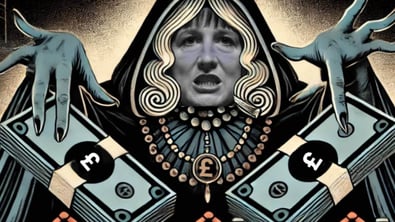A house price fall – or at least a house price downturn – has been widely speculated in 2023.
Is now the best time to obtain for a property bargain? This blog post explains.
What is a house price fall?
A house price fall occurs when there is a fall in demand and/or excess supply.
The main factors that cause a fall in house prices involve:
- Rising interest rates (making mortgage payments more expensive)
- Economic recession / high unemployment (reducing demand and causing home repossessions)
- Fall in bank lending and fall in availability of mortgages (making it difficult to buy)
- Fall in confidence / expectations of future house prices
- Changing demographics (less demand, e.g. net migration)
- An excess of supply in the housing market
- Fall in market rents making it less attractive to buy to let
What is the current state of the housing market?
UK house prices increased by 7.2% over 2022.
However, due to a complex range of factors the market conditions are changing.
Richard Donnell, Executive Director – Research at Zoopla has said: “The dynamics that have shaped the housing market over the last 5 years are shifting. We expect affordable urban centres to far better than average in 2023 but the inner London market may require another year before it is ready to rebound.”
Are house prices falling?
There has been a sharp drop in demand for housing since the summer, which has rapidly reversed the upward momentum in house prices.
Zoopla states that there has been a -50% year-on-year shift in demand as buyers have sat out of Q4 and waited to see the impact of factors on the market.
Average prices are up 7.2% year-on-year, which is an increase of £17,500.
However, the underlying rate of quarterly price inflation has showed quickly from over 2% up until the summer to just 0.3% in the last 3 months.
Zoopla predict price falls during 2023, dragging the annual rate negative by the middle of the year.
Demand for homes is down 50% year-on-year while the number of new sales agreed is down 28%. This demonstrates that committed buyers remain in the market as sellers are willing to negotiate on price, hence the discount to asking prices widening.
Current market activity signifies a shift to pre-pandemic market conditions of 2017-2019.
What is the housing market outlook for 2023?
Zoopla reports that affordability is the primary factor for 2023.
The more unaffordable a market, the more households are priced out, weakening demand and impacting sales volumes and pricing.
Higher mortgage rates increase the income needed to buy and worsen affordability for those buying wide a mortgage (7 in 10 sales). The impact is the greatest in high-value areas where mortgages are bigger.
Over the last 5 years house prices have risen fastest in the more affordable markets.
Most housing markets have recorded house price gains above the level of consumer price inflation and average earnings (22%) over the last 5 years. Economic growth and good affordability have enabled above average price gains over this period, supported by lower mortgage rates. The highest price increases since 2017 have been recorded in the Oldham (OL) postal area (+47%). Other high-growth markets include Newport (NP), Swansea (SA) and Bolton (BL).
Stretched affordability for buyers in London and the adjacent commuter areas have limited scope for price increases over the last 5 years, despite ultra-low mortgage rates until mid-2022.
Prices have fallen slightly in Central London (the WC, EC postal areas) since 2017 and are 24% lower in real terms, allowing for inflation.
Earnings have risen faster than prices since 2017 which is slowly improving affordability but average prices remain high by national standards and mortgage rates are now higher than last year. Zoopla predict the inner London housing market will rebound soon, providing there is an improvement in housing availability.
The pricing of flats has also underperformed the rest of the market. Apartments make up around 1 in 5 homes in the UK, but price inflation for them has lagged behind growth for houses, exacerbated by the search for space and concerns over claddings and leasehold charges.
The average price for a London house is x1.7 the price of a flat, up from x1.4 a decade ago. The same is true across the rest of the UK, where the price differential is x2.1, the highest for 20 years.
Zoopla expect demand for flats in 2023 as buyers seek better value for money.
Is there a regional house price fall?
In data released over the New Year weekend, the Nationwide says the slowdown was most pronounced in the South West – which had been the strongest performing region as recently as the autumn. The South West saw annual house price growth slow from 12.5% to 4.3%.
East Anglia was the strongest performing over the year, with average prices increasing by 6.6%. Meanwhile, Scotland was the weakest performing region, with annual growth of 3.3%.
Wales saw a significant slowdown in growth in the final quarter of 2022, with annual growth slowing from 12.1% in Q3 to 4.5% in Q4. Northern Ireland saw prices increase by 5.5% in 2022, much weaker than the 12.1% rise recorded in 2021.
Robert Gardener, chief executive of Nationwide says: “England saw a further slowing in annual house price growth to 4.8% from 9.9% in Q3. While East Anglia was the strongest performing region, southern England continued to see weaker growth overall than northern England.
“Within northern England (which comprises of North, North West, Yorkshire and The Humber, East Midlands and West Midlands), the West Midlands was the strongest performing with prices increasing by 6.1% over the year.
“London remained the weakest performing English region, with annual price growth slowing to 4.1% from 6.7% in Q3. The surrounding Outer Metropolitan and Outer South East regions saw very similar annual growth in 2022, with prices increasing by 4.2% and 4.3% respectively.”
Is now a good time to buy a house?
According to The Times, “Some people, especially first time buyers, will be hoping for house prices to fall further to make it more affordable to buy.”
Economic experts predict that interest rates will rise further in 2023, which has a knock-on effect on mortgage rates.
“There are already indications of homeowners putting off their next move. This is partly because of a shortage of available properties to buy to get on the next rung of the housing ladder but also because they are questioning whether their finances would be able to cope with the costs.”
This is therefore positive for property investors as there is less buying competition.
Benefits of buying a home now include:
- Rents continue to reach record highs so by waiting you could end up paying a lot more in rent than you would in mortgage repayments
- Owning a home means you don’t have to worry about your landlord hiking your rent or suddenly giving you notice to move out of your home
- Moving out of rental property means you would be paying off your mortgage, rather than someone else’s
- There is uncertainty on whether house prices will fall and by how much
- House prices may take a substantial hit, but another downside of waiting is that this might come at the expense of being able to secure a cheaper mortgage
- By owning a property for a longer period of time, you can ride out the downturn in prices
- If you’re putting down a large deposit then this reduces the chance of you ending up in negative equity
Now could be a good time to find a bargain, especially if a seller wants to sell quickly.
There might also be individual reasons why now might be the best time to invest – it can depend on personal circumstances.
To make the first steps on your property journey, read this free Wealth Through Property e-book.
For more information call us on 01302 897131 or email office@touchstoneeducation.co.uk.












